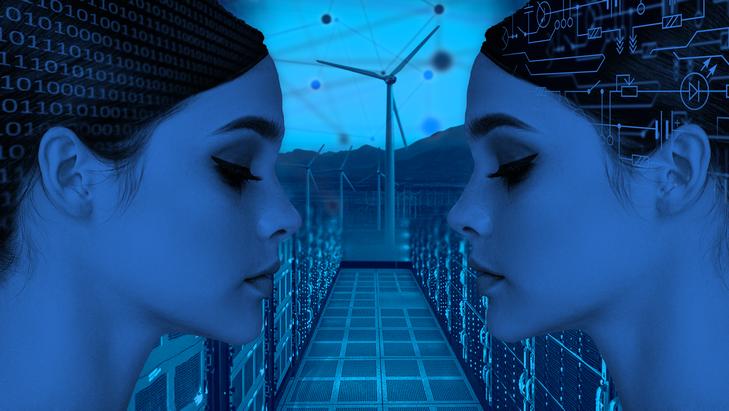Eaton, the smart power management company, announced today that it will expand its partnership with Microsoft to accelerate the applications of its uninterruptible power supply (UPS) technology, EnergyAware, in key segments around the world. The expansion is part of a new strategic framework between Eaton and Microsoft to manage major industry developments, including digital transformation, sustainability and the energy transition.
A key element of the strategic framework agreement is the inclusion of Eaton EnergyAware UPS technology in Microsoft projects. The main function of a UPS is to provide backup power protection for critical applications and facilities and to protect them against network outages or power quality issues. In close collaboration over several years, Eaton and Microsoft have added digital capabilities to UPS technology, enabling its use as a distributed energy resource (RDE) to support networks with high levels of variable renewable energy generation.
This will allow a new generation of ‘network-interacting’ data centers, including those operated by Microsoft, to support network operators by providing critical flexibility services. Incorporating network flexibility is an opportunity for data centers to capitalize on underutilized assets, for example, by providing energy storage and providing high-frequency rapid response services that network operators will increasingly need, as renewable capacity increases and the network loses the inertia associated with fossil fuel generation.
Discussing the importance of this, Craig McDonnell, vice president and general manager of Eaton’s Energy Transition and Digitization Division, said: ”An UPS technology that interacts with the network contributes to the decarbonisation of energy at the network level, which means that its sustainability generates benefits that extend beyond the data center. This changes the rules of the game in terms of energy management in the overall environmental impact profile of data centers.”
“A data center that interacts with the network is one in which its extended electrical system works not only to protect the user’s data and IT applications, but also to provide valuable electrical services to the operator of the electricity transmission system and the network. These backup services will be increasingly important to help the network cope with high levels of variable renewable energy,” also said Sean James, director of data center research at Microsoft.
